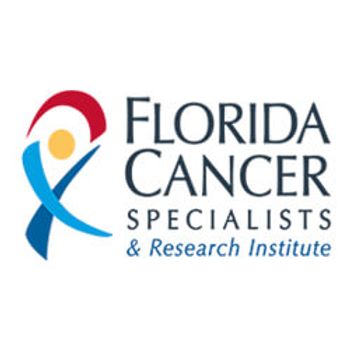
Providers
Latest News

Latest Videos

CME Content
More News

A comprehensive report exhibits how in-person, telephone-, and video-based care has trended from 2020-2023 within the US Department of Veterans Affairs health care system.

A recent study found that use of optimal guideline-directed medical therapies after heart failure with reduced ejection fraction (HFrEF) diagnosis is low overall, but especially among female patients compared with male patients.

A predictive model utilizing serum metabolic profiles was able to distinguish ovarian cancer from control samples with 93% accuracy, according to a new study.

A new study challenges assumptions about the role of dietary protein and fat in managing blood glucose fluctuations, known as glycemic variability.

MEDLINE, the Turning Research Into Practice database, Google Scholar, and organization guidelines were searched for their ongoing applicability to the management of Duchenne muscular dystrophy (DMD) and to determine if there is a need to develop new treatment recommendations.

OneOncology announces the appointment of new chair members of the OneCouncil Disease Group to begin service this year.

Patients with hemophilia A experienced prognostic and quality of life benefits from emicizumab (Hemlibra; Genentech) prophylaxis treatment.

Topline results from a pivotal phase 3, open-label extension study showcase the long-term safety and efficacy of olanzapine and samidorphan (Lybalvi) in patients with schizophrenia, schizophreniform disorder, or bipolar I disorder.

A community-based study suggests a correlation between university education and the likelihood of disease-modifying therapy (DMT) uptake in multiple sclerosis (MS).

An analysis of the DELIVER trial also revealed an association between dapagliflozin treatment and reduced risk of cardiovascular death among individuals with heart failure with improved ejection fraction (HFimpEF).

The TROP-2–directed antibody drug conjugate is currently being investigated as a monotherapy and a combination therapy for non–small cell lung cancer (NSCLC) in 3 trials: phase 3 EVOKE-01, phase 2 EVOKE-02, and phase 3 EVOKE-03.

Insomnia in patients undergoing hemodialysis was not found to be significantly affected by cognitive behavioral therapy for insomnia (CBT-I) or pharmacotherapy.

Results from a meta-analysis suggest a correlation between natural hair color and the development of skin cancer.

Compared with a hemoglobin A1c (HbA1c) level of 5.5%, adolescents with overweight or obesity were 72 times more likely to have diabetes if their HbA1c was 6.3% to 6.4%.

The study, which pulled self-reported data from online bulletin boards across the US, Canada, and the United Kingdom in 2020, found that the degree of burden varied based on patient disease stage, among other factors.

The January 2024 guidelines update also changed mirvetuximab soravtansine plus bevacizumab from a category 2B recommendation to a category 2A recommendation for platinum-resistant, FRα-expressing tumors.

A single-center study suggests complement inhibitors do not reduce the severity of a COVID-19 Omicron infection in patients with paroxysmal nocturnal hemoglobinuria (PNH).

An international, open-label trial demonstrated the overall survival benefits of administering tebentafusp to HLA-A*02:01-positive patients with metastatic uveal melanoma.

Molly Mendenhall, BSN, RN, director of quality and compliance at Oncology Hematology Care, Inc (OHC), discussed a 1-year quality improvement project implemented by OHC to standardize comprehensive biomarker testing in patients with non–small cell lung cancer (NSCLC).

The findings demonstrate the critical need for immediate policy reforms to tackle structural racism and promote equitable pediatric care in the US for children regardless of race or ethnicity.

Florida Cancer Specialists & Research Institute (FCS) announced the appointment of Joel Grossman, MD, and Maen Hussein, MD, to its executive board.

A cross-sectional analysis evaluated a myriad of socioeconomic and demographic factors that drive stigma experienced by patients with multiple sclerosis (MS).

Aside from semaglutide, alternate weight loss routes include other anti-obesity medications, chronic weight management programs, or obesity medicine specialists, said Ian Neeland, MD.

Myelodysplastic syndrome is an extremely heterogeneous disease, and there is no definitive cure, so these investigators wanted a better understanding of patients’ priorities regarding their care, quality of life, and communication with the care team.

In a systematic review and meta-analysis, real-time continuous glucose monitoring (CGM) demonstrated benefits in terms of time in range, hypoglycemia, and hyperglycemia among patients with type 1 diabetes (T1D).














